Hall County's small business community gathered Tuesday morning to hear an economic and political forecast as presented by four local business officials.
The event, presented by the Greater Hall Chamber of Commerce, hosted a discussion with Carol Burrell, President and CEO of Northeast Georgia Health System, Brian Daniel, President and CEO of Carroll Daniel Construction, Stephen Lovett, VP/Partner with Norton Commercial Real Estate and Phil Sutton, Vice President of Kubota Manufacturing of America.
The panel touched on several topics, including workforce challenges, housing, artificial intelligence and the impact of state and federal elections on small businesses in the region in 2024 and beyond.
Challenges
Throughout the hour-long discussion, the panel referenced housing availability as a key issue in the region.
"We have the workforce here, [but] we've got to find a place for them to live, that they want to live," Phil Sutton said. "Affordable housing for a high school student making $20 an hour is not a $2,000 a month apartment. It's not a $350,000 starter home ... to me, that's a big challenge that we have to overcome here."
Stephen Lovett with the Norton Agency echoed that sentiment.
"For sale homes are the lowest level they've been at, with one to two months of supply," Lovett said. "That's like a third of what would be a normal market. Single-family homes for rent don't exist. They're all occupied. We are starting to see a trend for multifamily units coming delivered, and we're seeing rents kind of stabilize ... and we're even starting to see some concessions, which we haven't seen for years."
Carol Burrell with NGHS said recruiting, retaining and training healthcare workers also continues to remain an issue in 2024.
"We're developing our own pipeline, working with Lanier Tech, working with the University of North Georgia," Burrell said. "We also have our graduate medical education program with close to 2000 residents now, and that's seven different specialties in two fellowships. We're looking to hopefully retain them."
Additionally, Burrell said the possibility of changes to Georgia's Certificate of Need program could lead to more challenges when it comes to healthcare in the state.
"That is a state health planning framework that's been around for decades," Burrell said. "It's looked to support nonprofits in particular because we're responsible to provide services that are not profitable; going to the emergency room, trauma, graduate medical education ... if the certificate of need goes away, that allows others to come in to siphon off the profitable business."
Positives in Gainesville-Hall County
There are plenty of positive things to report out of the Hall County business community, according to the panel.
Lovett said Hall County has attracted the labor force and young talent through its various recent developments.
"It was not fun to live here in your 20s in the early 2000s. That has changed drastically," Lovett said. "Downtown [Gainesville] is vibrant. For those of you who like to drink beer, there are two options where you can go and have beer and walk around and take your kids out to a playground there with NoFo Brew Co and Jekyll Brewing. There is a lot of expansion coming along -- you're going to have new places to shop for groceries."
Lovett said from a commercial standpoint, the cost of capital to begin a construction project has largely increased over the past decade. However, he said he believes construction costs could continue to stabilize, with the possibility that costs could slightly decline.
Speaking of construction, Brian Daniel with Carroll Daniel Construction said he has high hopes for the coming years.
"We're very optimistic that the overall climate improves, and while that may take a minute to settle out some of the vacancy rates and things that are going on in the industrial space market, I think 2025 and beyond really looks solid," Daniel said.
Burrell said one additional positive note relates to NGHS' economic impact on the region.
"The latest Georgia Hospital Association report shares that Northeast Georgia Health System has a $4.2 billion economic impact on the region," Burrell said. "I'm also pleased to say that our bond rating is an A with a stable outlook with Fitch and S&P."
The impacts of politics on local business
Brian Daniel said that while national and global politics do have an impact on local business, local and state officials have a more direct impact on the business climate.
"I think we're in a really great place locally and state-wise," Daniel said. "We have a governor now in Brian Kemp and his predecessor, Governor Nathan Deal ... that was their number one priority, making Georgia a great place to do business."
Daniel said businesses from the northeast are continuing to move south due to Georgia's labor laws.
"I think if you look back, the two greatest things that affect our employees are interest rates and the price of gas," Phil Sutton said. "And we've seen both of them double, triple over the last four years."
Sutton also cited tariffs that were placed on China by the Trump administration which led to an artificial increase of steel prices.
"We never use Chinese steel. We use 3000 tons of steel a month out of Alabama," Sutton said. "But our steel prices went triple because he put a 25% tariff on Chinese steel, which we never used ... politics does play a huge part in everything that we do every day... so we need to be engaged in those things."
Artificial Intelligence
The panel unanimously agreed that artificial intelligence is moving further into their respective industries.
"It's really impacting commercial real estate from an analyst standpoint," Lovett said. "You're starting to see more and more AI-driven analyzing going on. And what is that doing? Well, it's kind of eliminating the need for young analysts to come in and underwrite deals."
Lovett said he did two years of research when he first started out in the industry -- a method that could disappear with the use of AI.
"Ultimately, that's going to lead to people not entering that business, and I'm sure that would impact a lot of other ones as well," Lovett said.
Sutton said Kubota was working on a completely robotic cell that would eliminate heavy lifting work by humans. However, the industry would then need people to program the robots involved with these tasks.
"We're seeing a transition - not an elimination of people, but a transition of skill sets," Sutton said.
"I think it would be almost impossible to overstate the significance of AI to all of us in ways that nobody here could fully understand yet," Daniel said. "I think our industry will just be revolutionized in the very near future by these technologies."
You can listen to the full panel discussion in the above SoundCloud player.
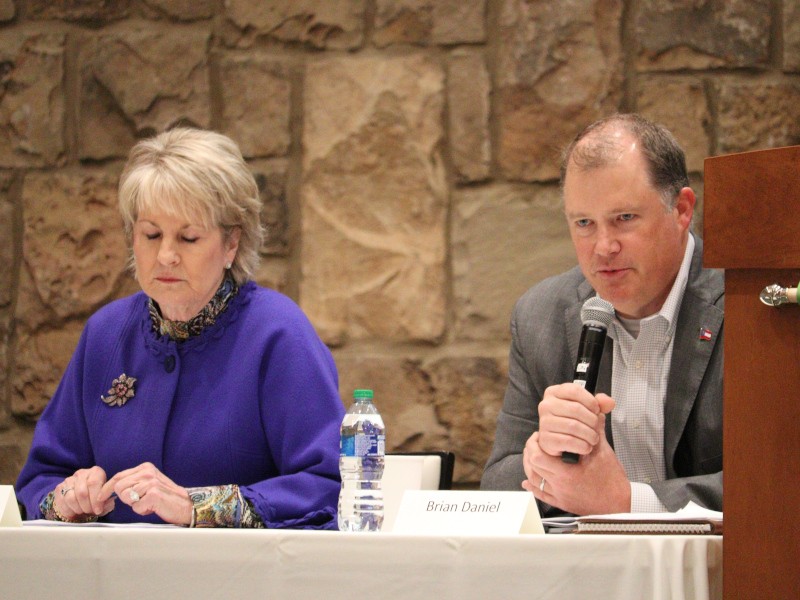
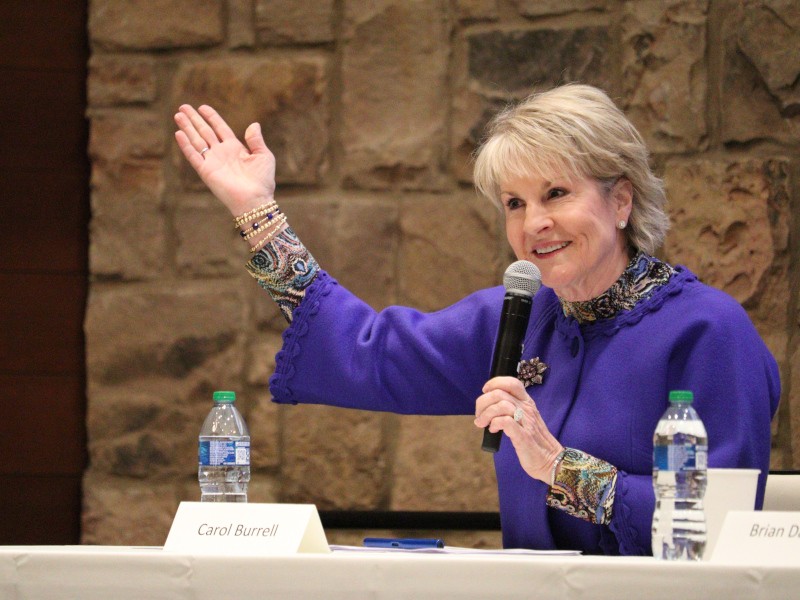
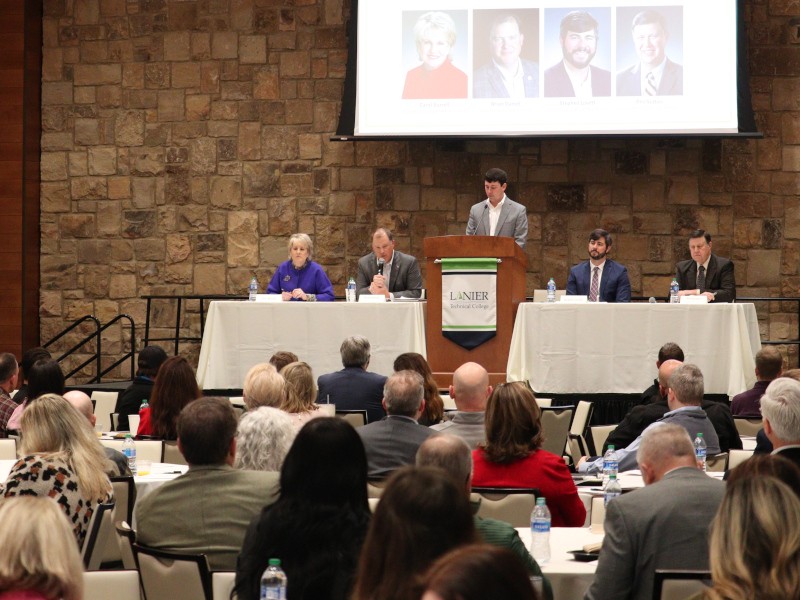
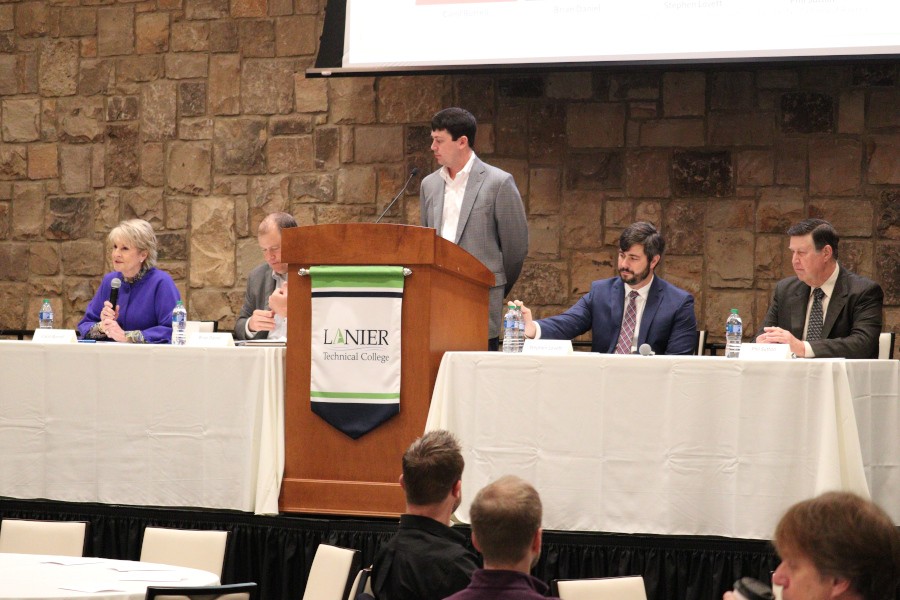
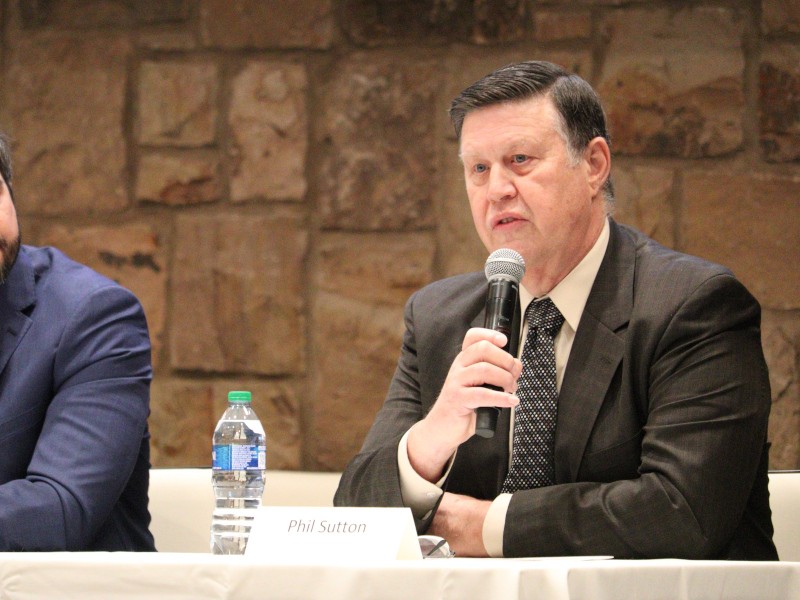
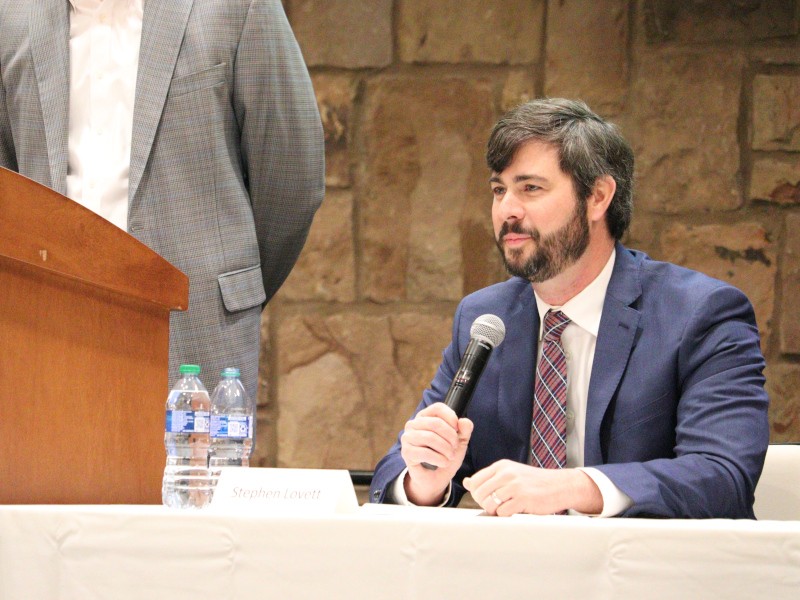
http://accesswdun.com/article/2024/1/1225551/local-officials-discuss-economic-and-political-forecast-with-small-business-community
